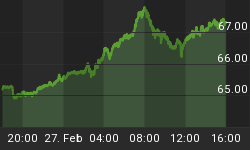At the start of every year we put together our best research and analysis and then formulate a forecast based on the most likely outcomes. Unlike others who simply say what they think will happen, we sit down and analyze the fundamental, technical and sentiment evidence and opine on what is most likely to happen, what might happen and what won't happen. We take a lot of pride in this, as we believe we are one of the few that puts forth actionable research and makes it available to the public.
Heading into 2010 we've seen a range of forecasts and opinions. The econo-bears like Michael Panzner and David Rosenberg, while very prescient on the economy, continue to expect new lows or a retest of 2009 lows. Some bulls see the strong recovery as a sign that we are in a new bull market and that the market is leading the economy. Few seem to take the middle ground. Maybe that is because such a forecast isn't worth reporting in the media. That being said, before we think what is likely, let us think what is not likely.
Stocks have recovered too far and too fast for the super-bearish scenario. A market needs a distribution period before a huge fall. The distribution period was the 2007-2008 head and shoulders top. Also, since we are 10 years into a bear market, who exactly is left to sell? People were wiped out in the tech bubble, the housing bubble and in the recent huge decline in stocks. Since we are in a secular bear market (and most would agree) stocks are unlikely to make new highs anytime soon.
Interestingly, there is a secular bear market template that can help us project 2010 and the few years after. We are in the fourth secular bull market since the 1890s. The current bear market is following the exact path of the last three. The crash of 2008 happened in 1974, 1938 and 1907. The huge rebound of 2009 happened in 1975, 1938, and 1908. The structure and size of these three massive rebounds is a key point for 2010 as we project the future of the current rebound.
The template also helps us project commodities. The latter half of stock bears usually involve rising inflation, rising interest rates and sometimes rising taxes. Commodities really accelerate at a certain point following the crash. It was the same point in the last two stock bear markets. We apply that to the current situation.
Also, there is another point in history that shares strong similarities both fundamentally and technically to the current bull market in commodities. That history, when applied to the current commodity bull market projects acceleration in commodities in a certain year, the same year as the first template suggests. Will that be 2010? Was it 2009?
We believe that for commodities, sector selection will be important in 2010. There are two sectors you want to be long and one looks especially promising on a risk reward basis. Certainly one wants to be long precious metals. Gold has been up every year for nine years and we've yet to see excessive bullish sentiment or a parabolic run that would signal an impending top. Will that be in 2010?
Most predictable for 2010 is that interest rates will rise. There just isn't the global liquidity or economic strength needed to help sovereign bonds. Moreover, if you look at how much debt was monetized this year, how much foreigners bought and compare that to the growing funding needs in 2010, there is just no way interest rates won't rise. Monetization in both the US and UK will be needed on a greater scale and that figures to be the next great catalyst for the precious metals.
To learn more about our Market Outlook, you can visit this page: http://wallstcheatsheet.com/trading/2010-market-outlook-report-by-jordan-roy-byrne-cmt/?p=5312/
Good luck and good investing in 2010!















